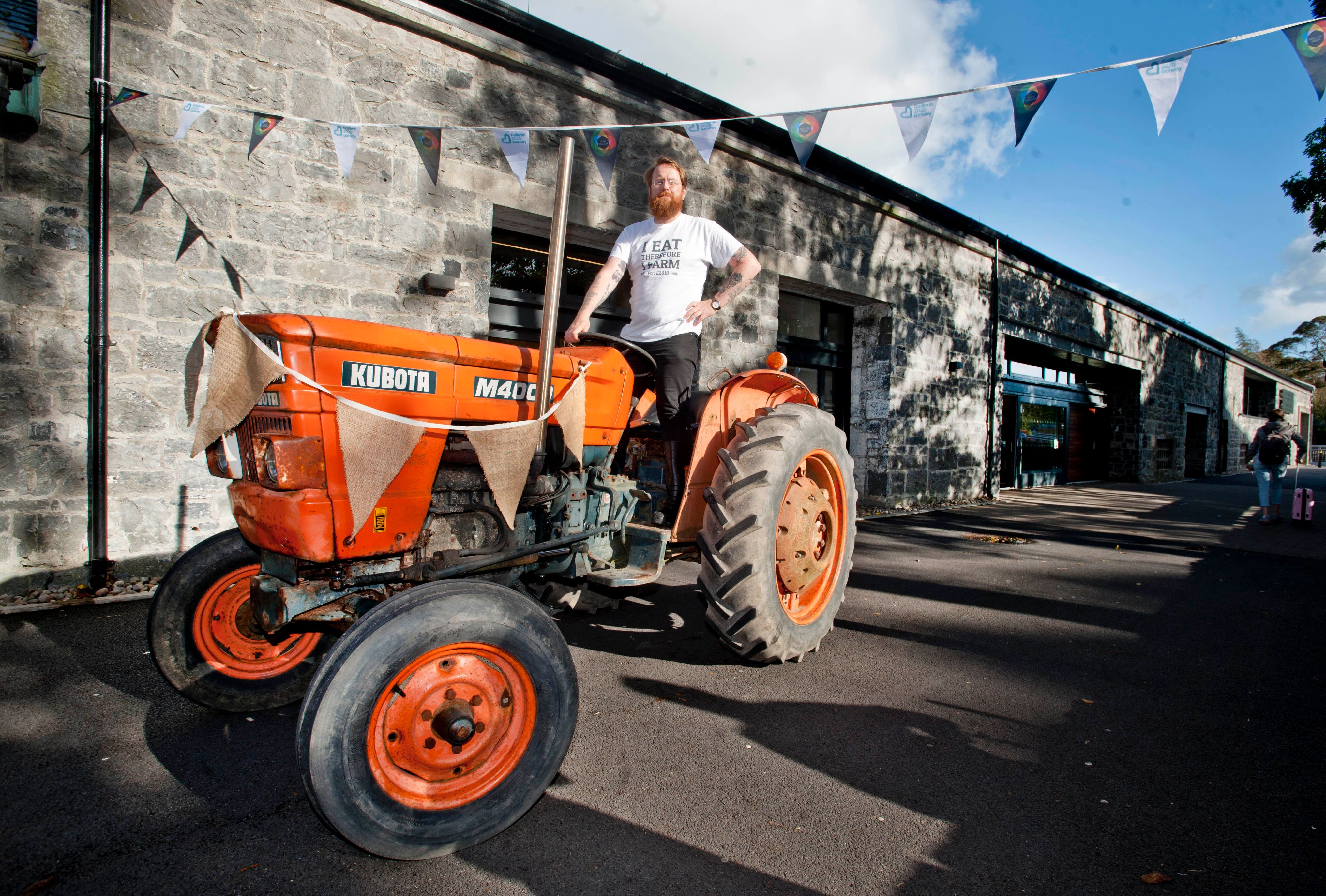
By Mark Lynch
NUI Galway is hosting Food on the Edge, an international food symposium, for the second year in a row, over the 21st and 22nd October. The two-day convention brings a wide range of international chefs, food producers and thinkers together, in order to share, learn and discuss the future of food. Founder and symposium director, JP McMahon, caught up with SIN ahead of the event to give us an insight into what it’s all about.
Food on the Edge is now in its fifth year, having been founded in 2015. Over the 5 years, the aim has remained to promote Irish food to a global audience and the way it’s grown in that time has reflected that, says JP, “It’s grown as I expected in the sense that we brought over chefs to inspire industry professionals, other chefs, make food better, and also to inspire the chefs. Most of them have never been to Ireland before, so you’re bringing these high–profile people over. They go, ‘Oh, I love Ireland, but I’ve never been’, and they all have this image of the country roads and the fine trees and the cottages. When they come over, it’s good to bash reality up against that and they all leave really liking it, particularly the hospitality”. What has surprised JP, however, is the international acclaim that the convention has received. “When I travel, a lot of people mention it as one of the best symposiums on the circuit”.
JP himself is the co-owner and operator of the Michelin Star restaurant Aniar, as well as Cava Bodega and Tartare Café and Wine Bar, along with his life Drigín. The pair have become icons in the growing market of high-quality food experience in Ireland, especially in Galway. The food culture that has developed here is still at an early stage, as JP explains, “We just haven’t had the confidence to talk about our food. We have amazing produce, a lot of which we export. We treat ourselves as producers, we produce a product and we give it to someone else to enjoy it for pleasure. It’s only in the last 20 years that we’ve realised we can sit down and enjoy it”. Along with this attitude exists the stereotypes about the Irish diet, “There’s the stereotypical image of Irish people as beef and potato eaters. We actually don’t produce enough potatoes to feed ourselves anymore. We’re a net importer of potatoes and yet, still, 90% of people would say their image of Irish food is the potato”. Opening people’s minds, both in Ireland and abroad, is a slow process. “For me, it’s important to turn that around and change that. The difficulty with getting past those stereotypes is that they have a vision of Ireland, though they mightn’t have been here yet, and that vision is predominantly agrarian, rural and it’s very hard to pull that away from them. Food on the Edge has helped change (that) and it’s a very slow change. You bring over a chef, change his opinion and then he goes back. In spite of the internet and social media, it still takes a long time because people have to come here for their minds to be changed. It’s not enough to see it on a phone, there’s an experiential dimension”.
NUI Galway hosts Food on the Edge for the second year running, after originally being held in the Spiegeltent in Eyre Square, the Town Hall and the Black Box Theatre. JP outlines why it suits the event as a venue. “The University is a good fit because there’s an educational message to Food on the Edge. It’s important to keep an academic aspect and a thinking aspect, because the industry doesn’t reflect on itself enough. All the projects being done (in NUI Galway) could change the way we think about food and the University acts almost like a laboratory”.
Despite the growing confidence in the Irish food industry, students still find it difficult to experience high-quality food on restricted budgets. JP is aware how tough that can be, but that it’s not the root of the problem, which is food education. “I do think, eating from the supermarket, it’s difficult, it’s a challenge, definitely. The other challenge for young students is the ability to cook. We don’t have a food education programme in Ireland. If we don’t set people up to cook by the time they get to university, they can’t cook and they’re all eating Pot Noodles, or whatever. I found that 20 years ago when I was a student. I had started cooking at 15, but many of my friends couldn’t cook at all. It was just literally beans on toast and takeaways and it’s terrible to say that 20 years on, we still have the same problem”.
Food on the Edge is a ticketed event, however, for any students who want to learn from the symposium, there’s always another way. “The whole idea is that it shouldn’t be exclusive, so we record everything we do and put it online after the event, because it’s really important to document what we do”.